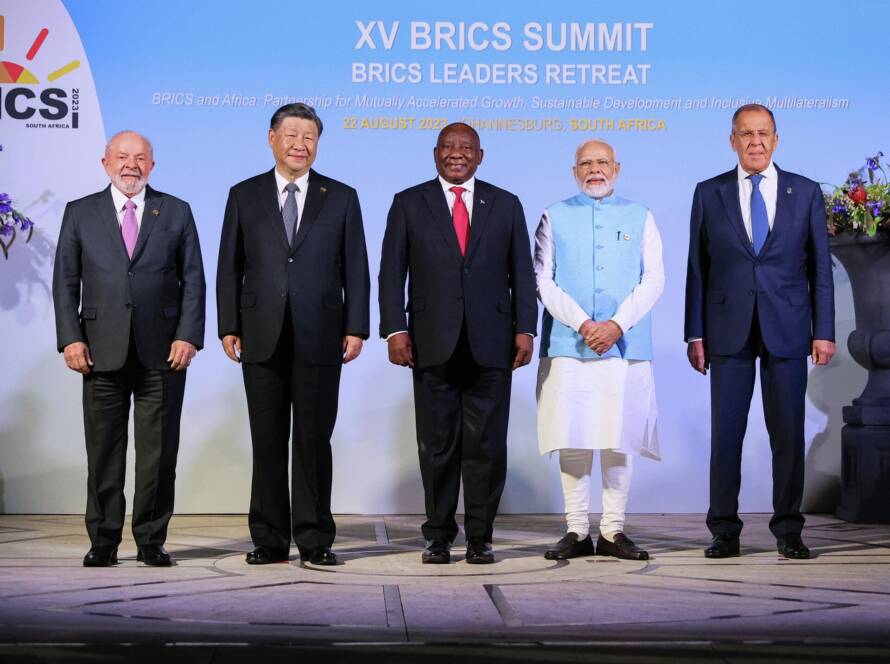By Aavin Abeydeera
Enjoying its position as the middleman between Europe, the Middle East, and greater Asia, Türkiye’s elections have always made it to the front page. Should an election swing to the far right, the European Union suddenly goes on red alert. Should an election swing to the far left, the Middle East criticizes the West’s influence on this eminently Muslim nation.
On May 23, 2023, Türkiye’s incumbent retained his stay in power to a quarter of a century, perhaps unsurprising given his long-lasting appeal in Turkish politics. While many predicted this result, many also noted this election as the most closely contested in Türkiye’s history, and that Erdoğan’s grip on power may be waning. This says a lot about how the world is viewing the polls.
For two decades, Recep Tayyip Erdoğan has held power in Türkiye, three terms as Prime Minister, then as President since 2014. By all accounts, his has been a polarizing reign. On the one hand, his supporters argue that he has modernized the economy and benefited the middle-classes. Indeed, under his rule, the economy has become one of the fastest growing in the world. On the other hand, his detractors criticize his Islamic and nationalistic postures, stating he has singlehandedly eroded the secular principles the Turkish Republic was founded on under Abdul Gamal Ataturk.
Events like the Gezi Park protests and the 2016 military backed coup are proof that Erdoğan is not that much of a universally loved figure in Türkiye, despite his victory speech after the recent elections. Nevertheless, Türkiye’s growing status as a regional powerbroker and a powerful mediator in international politics can largely be attributed to the Erdoğan government.
Under Erdoğan, Türkiye came to exercise what can be termed as “muscle diplomacy.” The country, for all intents and purposes, can afford to be an ally to more than one party, by virtue of being one of the most important allies a major power can have. Cradled by both the West and the East, every powerful country on earth has kept its eye on Türkiye’s elections, as it can have a big effect on global power dynamics. In fact, with Erdoğan’s stay extended, several things seem clear.
Firstly, under Erdoğan Türkiye will continue to play the role of mediator and broker between NATO and Russia, giving it a major role in global politics. Secondly, his stay in power will rile those in the EU and exacerbate tensions between Western Europe and Türkiye.
Domestically, while his supporters have grown louder on the back of his purported successes, his authoritarianism has begun to alienate a considerable chunk of the population, notably those of the Gen Z and Millennial cohort. Erdoğan’s base is built on the peripheries of Anatolia, in the villages and towns that serve as bastions of conservative Islamist thought.
The fact that Erdoğan faces stiff opposition in cities such as Ankara, Istanbul, and Izmir is telling. Almost half of the country’s 85 million citizens live in urban areas and hold more secular views than that of their rural counterparts. Erdoğan’s inability to win these constituencies mirrors his failure to represent the will of the urbane, more secular portion of Türkiye’s populace.
These perceptions not without just cause. For example, Erdoğan’s focus on “family-centric” values have been criticized as thinly veiled threats against the country’s LGBTQ community, who have faced much persecution under Erdoğan’s Islam-centered policies.
Erdoğan’s aggressively pro-Islamist stances are not just talk. Not long ago, the Hagia Sophia stood as a symbol of Türkiye’s multireligious roots. Erdoğan’s decision to convert it into a mosque essentially betrayed his refusal to abide by secular values and principles. In fact, while many are supportive of Islamic Turkish nationalism, such nationalism is fervently opposed by those who accuse the President of eroding the principles upon which the modern Turkish identity was built.
Like his approach to politics and ideology, Erdoğan’s economics has also had its share of critics and supporters. While those who support him point to the unprecedented growth Türkiye’s economy has experienced during his years as Premier, those opposing him point out the record inflation rates in the country today, which, at least in part, can be attributed to his gung-ho populist attitudes to fiscal and monetary policy, prominently his insistence on not increasing interest rates.
In any case, the rising tide of opposition has shown its true face. Erdoğan’s opponent in the elections, Kemal Kılıçdaroğlu, who has championed a return to secular values, won 48% of the votes in the second round. What is remarkable, if not surprising, is that this is the first time Erdoğan has been pushed into a second round of elections. All his previous victories have come in the first round. In that sense, the 2023 election has been the first to properly challenge Erdoğan’s rule, even though he has gone on to win the contest with a clean 52% of the votes.
Kılıçdaroğlu has called this election “unfair” and contested on uneven grounds. At the same time, the outcome has been nothing short of encouraging. It has shown that the will of the Turkish people is slowly changing. For those watching from outside, the results perhaps indicate signs of a return to pluralism and secularism, away from the trends that have pushed nations towards nationalism and populism. To be sure, Erdoğan has extended his stay for five further years. Yet only time will tell if the next election he faces will intimidate him to the same extent that this election has.
Aavin Abeydeera is a student at the Bandaranaike Center for International Studies (BCIS). He is interested in learning and writing about the world and how it operates. His interests range from geopolitics, economics, and foreign policy to culture and sports.
Factum is an Asia Pacific-focused think tank on International Relations, Tech Cooperation, and Strategic Communications accessible via www.factum.lk.
The views expressed here are the author’s own and do not necessarily reflect the organization’s.



1 Comment
Sandeep De Silva
The author shows an interesting point of view here. Goes very much in depth to this issue and maintaining a pretty unbiased, fact based article. Talking about both sides and drawing conclusions. Magnificently done.